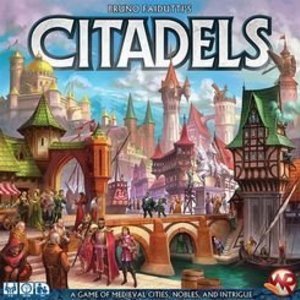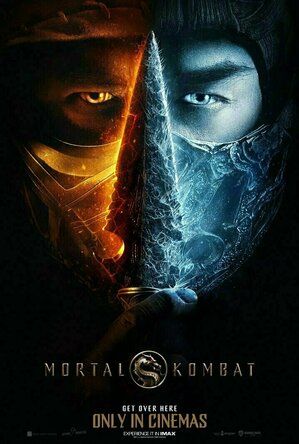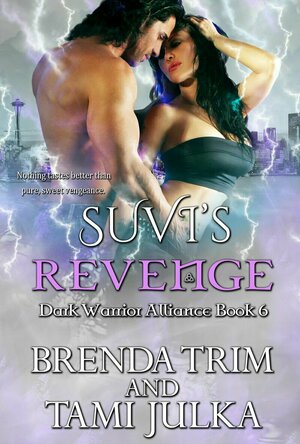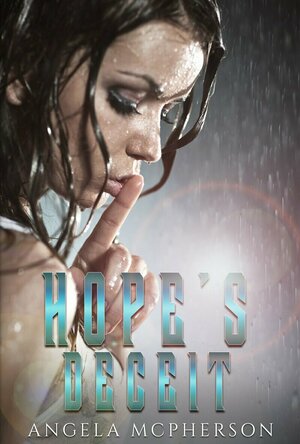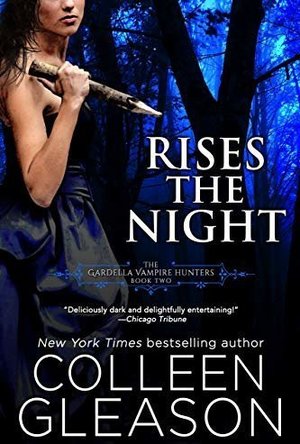
Rises The Night (The Gardella Vampire Hunters, #2)
Book
The second installment in award-winning, New York Timesbestselling author Colleen Gleason's...
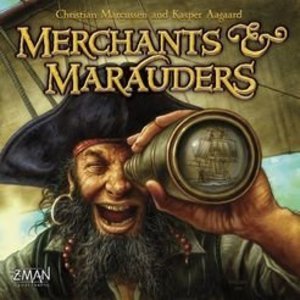
Merchants & Marauders
Tabletop Game
Merchants & Marauders lets you live the life of an influential merchant or a dreaded pirate in the...
BoardGames Pirategames
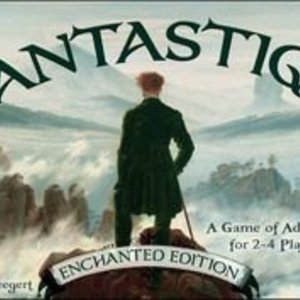
Fantastiqa
Tabletop Game
Welcome to the wild, weird world of FANTASTIQA! Fantastiqa is a deck-building board game set in a...
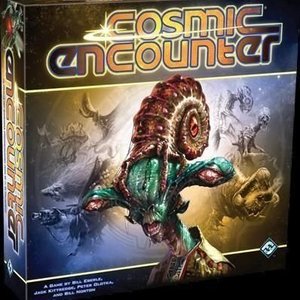
Cosmic Encounter
Tabletop Game
Build a galactic empire... In the depths of space, the alien races of the Cosmos vie with each other...
Boardgames GroupGames SpaceBattlegames
Emma @ The Movies (1786 KP) rated Mortal Kombat (2021) in Movies
Aug 21, 2021
I'm going to skip over the extended synopsis, firstly because the short one sums it up, and secondly because if I put much more in it the whole plot will be ruined.
While I watched the film I was generally entertained, but when I came out there were some points that festered in my brain a bit. And those thoughts seem to have been reflected in podcasts and reviews I've come across.
This is probably exactly what you'd expect from A] a video game film and B] a Mortal Kombat film... it's both good and bad in varying degrees.
What is sad about this review is that I can't really tell you anything good about it... or just anything about it at all. Everything was instantly forgettable. I can tell you the woman from The Meg & Black Water Abyss is in it (because of course I can). I can tell you that there are bad guys fighting the good guys... or the less bad guys...
Effects, there are some of those too. Vague recollections of them being okay. I could certainly embrace the fantasy angle and forgive some things.
At this point I'd like to apologise for such a half arsed review, but it does perfectly illustrate the film... waffle with no real purpose. Although actually, the film does have a purpose. To set up for a sequel. Because some random comic violence and odd powers are generally entertaining.
As a sign off for this review, I would like to say sorry for this trash (the review and the film). I just think it perfectly sums up how I felt about this film: I've wasted your time, you'll never get it back, but I've (hopefully) given you some brief moments of entertainment. But on the plus side, if you've read this review before seeing the film then I might have saved you the 1 hour and 50 minutes (oh my god, I don't even know how I sat through that) of viewing time.
Originally posted on: https://emmaatthemovies.blogspot.com/2021/08/mortal-kombat-movie-review.html
Lyndsey Gollogly (2893 KP) rated Suvi's Revenge (Dark Warrior Alliance #6) in Books
Sep 19, 2021
Kindle
Suvi’s Revenge ( Dark Warrior Alliance book 6)
By Brenda Trim and Tami Julka
Once read a review will be written via Smashbomb and link posted in comments
Suvi is the youngest of the Rowan triplets and prefers high heels to combat boots and parties to battles. Unfortunately, lately, she finds herself fighting more than she does drinking martinis. If she isn't rebuilding the business she shares with her sisters, she's searching for their archenemy, Cele. The way Suvi sees it, they've done their part and it's time for a celebration, but that isn't in the cards for her. The moment she has dreamt of her entire life happens when she meets her Fated Mate, yet she isn't able to plan the party of the century. Instead, she and her sisters have seventy-two hours to investigate a murder, locate a rogue vampire, stop an evil witch from stealing their powers and save her mate from a death sentence. She wants nothing more than to spend her days and nights in sensual oblivion with her vampire, but the clock is ticking. Caine DuBray's world is upended when he wakes up next to a human female that has been drained dry. As the only vampire on scene, her death is immediately pinned on him. He believes he is innocent, but the problem is that he can't recall the details of their date. Rather than executing him immediately, the Vampire King takes pity on him and gives him three days to prove his innocence. He discovers that one of the witches he is directed to is his Fated Mate. Their passion sets him on fire and leaves him desperate for the chance to spend eternity with the sexy witch.
This was a pretty good short bordering 3.5 stars. It’s good to see the sister are now al mated. I’m a bit unsure the Cele is really dead though as she was planning a clone! I don’t think we’ve seen the last of her it seemed to easy! I do love our little visits to the realm!
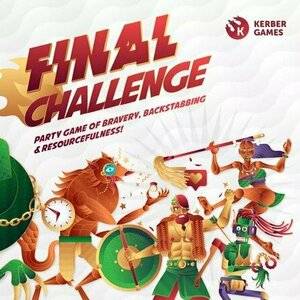
Final Challenge
Tabletop Game
Final Challenge is a party game so packed with action it does not have to pose as a drinking game!...
Merissa (13782 KP) rated Hope's Deceit (The Fated #2) in Books
Apr 25, 2023
Trinity still has her hands full as she tries to learn about her powers and prepares for her eighteenth birthday which is rapidly approaching. Things are not all sunshine and roses with her and Blain - some of which is caused by miscommunication, some by age (she is only 17 after all) and some by circumstances. Every time they were together, my heart was in my mouth! I really want them to be together, but can also understand how the others say that Blain makes her weak. I really hope that she will start to show her true strength now, she has reason enough - and that is all I will say so that I don't give out any spoilers.
The one character I didn't get on with as much in this book is Trinity's dad. He seemed to have whiplash with his emotions and I just couldn't keep up. Still, this is a small thing and also understandable as a father realises he has to let his daughter grow up, even if these circumstances are slightly unusual! 😉
Well-written, fast-paced and chock full of emotion, you will be held prisoner by this book, turning the pages as you immerse yourself within the storyline. With no spelling or grammatical errors that I found, this was an amazing second book and I am now on tenterhooks whilst I wait for the third. If you like Urban Fantasy with a bit of Greek Mythology thrown in, then I can highly recommend this book and the first one in the series. Absolutely fantastic.
* A copy of this book was provided to me with no requirements for a review. I voluntarily read this book, and my comments here are my honest opinion. *
Merissa
Archaeolibrarian - I Dig Good Books!
Nov 13, 2015
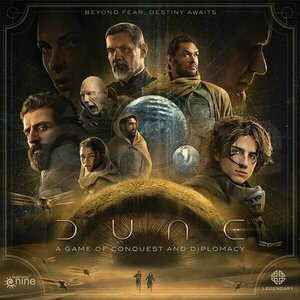
Dune: A Game of Conquest and Diplomacy
Tabletop Game
Take part in one of the most famous science-fiction stories of all time. Dune: A Game of Conquest...
